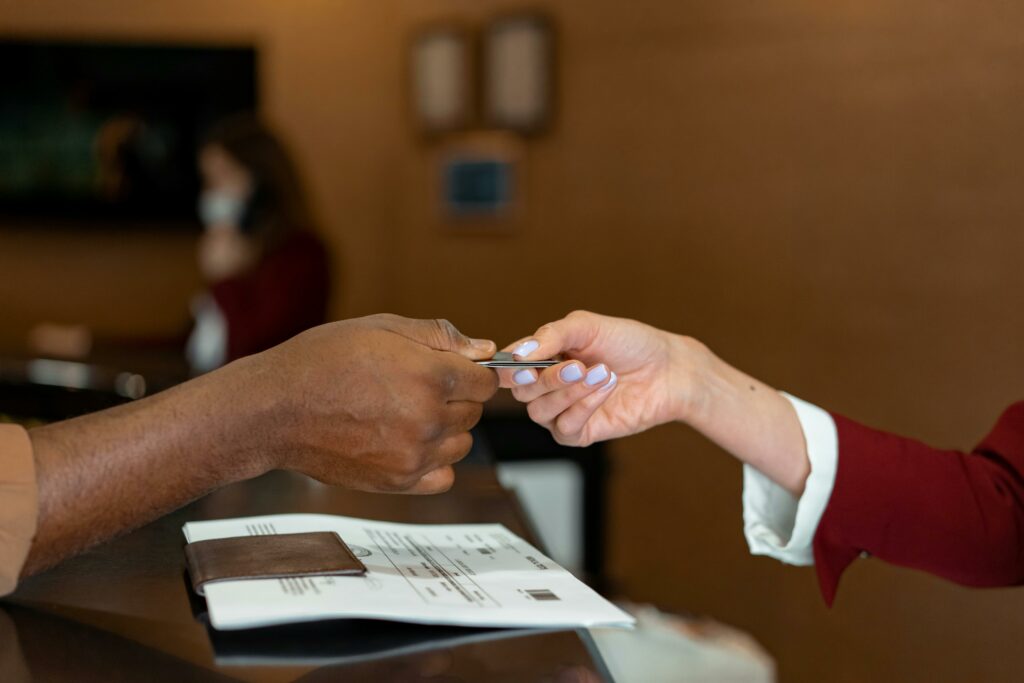If you manage a hotel, you know that the privacy and security of your guests’ data are essential. With the General Data Protection Regulation (GDPR), it is important to take the necessary measures to comply with the law and ensure your guests’ trust.
In this GDPR guide, we explain how to apply this regulation in your hotel, avoid penalties, and enhance the guest experience.
1. Why is GDPR important for your hotel?
GDPR is a European Union regulation that governs the collection, processing, and protection of personal data. Its goal is to ensure user privacy and establish obligations for businesses that handle personal information.
In your hotel, you handle personal data daily: reservations, check-in, payments, guest preferences… That’s why it’s crucial to implement best practices to protect this information and ensure compliance with the law.
2. What personal data does your hotel handle?
Hotels collect key guest information, depending on the country and its local regulations. Some of these data include:
- Full name
- Identity document (ID, passport)
- Contact details (email, phone number)
- Payment and billing information
- Stay preferences and used services
- Health data (such as allergies or accessibility needs, if provided by the guest)
Since this information is sensitive, you must handle it with maximum care and ensure your staff treats it with strict confidentiality.

3. What must your hotel do to comply with GDPR?
1. Ensure you have a legal basis for processing data
You cannot collect or use personal data without a valid reason. In the daily operation of your hotel, the most common legal bases are:
- Contract execution, when a guest makes a reservation.
- Legal obligation compliance, such as registering travelers with the authorities.
- Explicit consent, when sending promotions or newsletters.
- Legitimate interest, when managing data to improve service or customer experience.
2. Always inform guests about how their data is used
Your hotel must have a clear and accessible privacy policy that explains:
- Who is responsible for data processing.
- What information is collected and for what purpose.
- How long the data is stored.
- What rights the guest has and how they can exercise them.
3. Obtain consent when necessary
To use a guest’s data for promotions or satisfaction surveys, you need their explicit consent. Ensure this is given clearly, with no pre-checked boxes or confusing text.
4. Protect data with proper security measures
The security of your guests’ data is your responsibility. Some key measures you can apply include:
- Encryption systems and restricted access
- Staff training in data protection
- Regular security audits
- Storing data only for as long as necessary
5. Appoint a Data Protection Officer (DPO) if required
If your hotel processes data on a large scale, you may need a Data Protection Officer (DPO) to oversee GDPR compliance and act as a liaison with the Data Protection Agency.
4. Practical tips for applying GDPR in your hotel
- Digitize your check-in: Implementing an online check-in system minimizes the handling of physical documents and improves data security.
- Review and update your privacy policy: Ensure it is clear and GDPR-compliant.
- Check third-party contracts: If you work with booking platforms or management software, verify their GDPR compliance.
- Facilitate rights requests: Implement an easy system for guests to access, modify, or delete their data.
- Train your staff: Security starts with education. Make sure your team understands how to handle personal data properly.
5. GDPR fines for non-compliance in hotels
Failure to comply with GDPR can lead to significant fines for hotels. European data protection authorities may impose penalties depending on the severity of the violation, following the regulation’s structure:
- Fines of up to €10 million or 2% of annual turnover apply to minor violations, such as:
-
- Not keeping an adequate record of data processing activities.
- Lack of proper security measures to protect data.
- Not conducting a risk analysis or impact assessment when required.
- Fines of up to €20 million or 4% of annual turnover apply to serious violations, including:
- Collecting or processing personal data without a valid legal basis.
- Failing to properly inform guests about data usage.
- Ignoring guest requests regarding their rights (access, rectification, deletion, etc.).
- International data transfers without adequate safeguards.
Beyond financial penalties, authorities may also demand corrections to improper practices or even suspend data processing in severe cases, affecting hotel operations.
Each country has its own data protection authority (such as the AEPD in Spain, the CNIL in France, or the BfDI in Germany), responsible for investigating and enforcing sanctions.
This means that:
- The fine limits mentioned above apply across the EU.
- The actual fine amounts vary by country and case. Some countries impose higher penalties depending on their interpretation of GDPR and the severity of the violation.

5.1. Examples of GDPR fines in EU countries
- Spain: In February 2025, a hotel was fined €1,500 for requesting a photocopy of a guest’s ID during check-in, as this was considered excessive data processing. Here in our blog we explain whether it is legal or not to ask for your ID at the hotel.
- France (CNIL): A €600,000 fine was imposed on a hotel in 2021 for failing to adequately protect guest data.
- Germany (BfDI): A hotel was fined €15,000 for storing credit card data without proper security measures.
- Netherlands: A €50,000 fine was issued to a hotel for denying guests access to their personal data.
To avoid penalties, hotels must comply with GDPR, implement security measures, ensure transparency with guests, and train staff on data protection.
6. Conclusion
Complying with GDPR not only helps you avoid fines but also strengthens guest trust and improves your hotel’s reputation. By implementing the right measures and using technological solutions, you can protect data while providing a secure and transparent experience for your customers.
If you want to digitize data management in your hotel and ensure GDPR compliance, an online check-in solution can help automate processes and enhance security.
At Civitfun, we have GDPR Certification and PCI Compliant Certification for payment management, ensuring secure handling of guest data and risk-free transactions. We can help you comply with hotel regulations while digitizing operations.